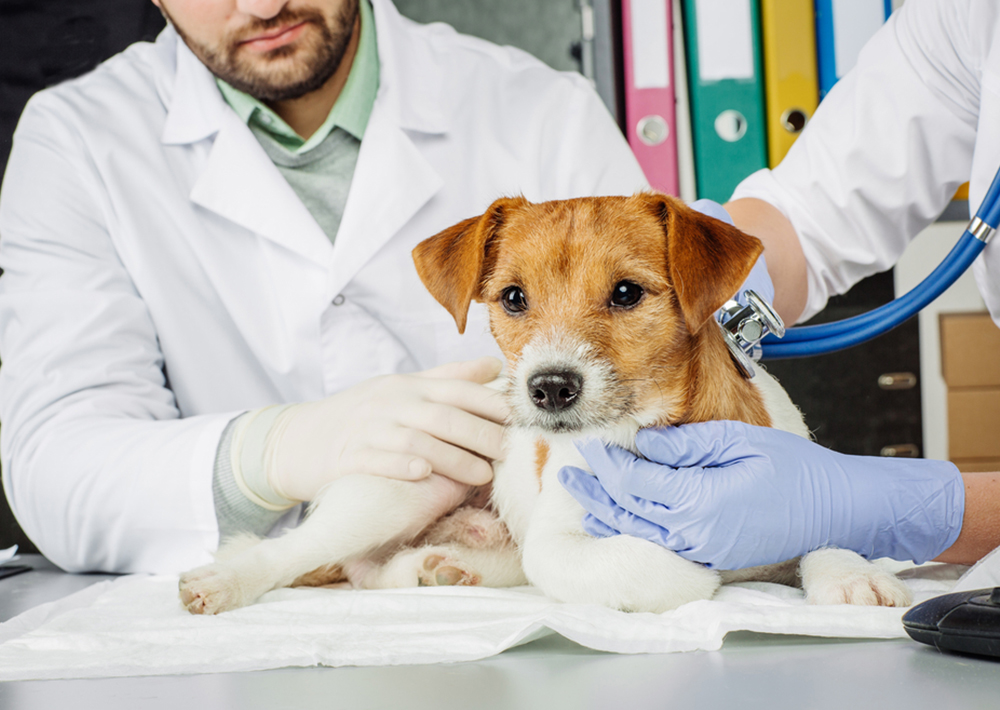NATIONAL PET CANCER AWARENESS MONTH: THINGS YOU SHOULD KNOW ABOUT CANCER IN PETS

- November 22, 2019
- Fizzion Clean
The last thing a pet owner would want to hear is that their beloved pet has cancer. Sadly, cancer in pets is more common nowadays as compared to years ago. However, just as the disease has progressed, so has its treatment. There is a plethora of information out there from preventative options to the treatment itself. Knowing the basic information about cancer in your pets can help guide you in taking the right steps. In this article, we will discuss the preventative measures you can take in order to save your pet from getting cancer and what to do if your pet does get diagnosed with cancer.
Basic Information About Cancer In Pets
SPAYING AND NEUTERING
There are various reasons for you to neuter or spay your pet. For starters, it can greatly improve their behavior. Plus, when it comes to female pets, it stops them from going into heat and creating an unpleasant mess. Despite all that, the most important reason is that it prevents your pet from getting cancer. If you spay your female pet prior to them going into heat, you will greatly lessen the chances of them getting mammary cancer. Even if the pet has already gone into heat, spaying is still very effective in preventing cancer. Likewise, neutering your male pets will get rid of any chance of them getting testicular cancer.
A SIMILAR DIAGNOSIS
As your pet ages, the chance of them developing cancer increases as well, just like it does in humans. Furthermore, dogs have a higher rate of being diagnosed with cancer as compared to cats.
SUNSCREEN FOR YOUR PETS
It might sound strange but just like humans, dogs and cats can also get sunburnt and develop skin cancer. It is advised to keep your pet away from the powerful midday sun and if you cannot do that then apply sunscreen on them. However, use the sunscreen that is specifically made for pets. Since pets tend to lick their fur often, you need to make sure that your pet’s sunscreen contains non-toxic ingredients.
CANCER CAN TAKE PLACE ANYWHERE IN A PET’S BODY
Cancer can take place anywhere in your pet’s body, whether it’s the spleen, skin, tissue or lymph nodes. Plus, some types of cancers can be seen or touched. However, in order to catch the other type of cancers it is important to notice changes in the moods and habits of your pet; hence visit your vet often.
OBESITY IN PETS
There is a decent amount of evidence available that suggests that obesity plays a great part when it comes to your pet being diagnosed with cancer. It can greatly increase the chances of your pet developing certain types of cancers.
What Questions Should You Ask Your Veterinarian?
If your pet has been diagnosed with cancer, then do not fret. There is still a lot of hope left. Below is a list of questions that you can ask your pet’s veterinary oncologist and veterinarian in order to clear any doubts you might have and ease your mind.
What treatments are offered?
What is the prognosis with every treatment?
What will be the aftermath of each treatment and how will it affect my pet’s life?
For how long should my pet be treated?
How much does each treatment cost?
For how long do we have to visit the veterinarian afterward?
Cancer Treatment Options
The course of your pet’s cancer treatment is decided by your veterinary oncologist or veterinarian. Plus, it will depend upon the form of cancer and other factors that are specific to your pet. Your veterinarian might suggest radiation, chemotherapy, surgery or a combination of these cancer treatments for your pet. Your veterinary oncologist or veterinarian might suggest discontinuing the treatment if the symptoms relating to radiation therapy or chemotherapy cannot be treated with the help of supplementary medicine. Moreover, veterinary medicine has recently made progress in treatments like antibody therapy and immunotherapy.
In the end, a pet owner is overwhelmed with anxiety and stress after they discover that their pet has cancer and wants the most effective treatment that is out there for their beloved pet. However, planning ahead by taking preventative measures and discussing the health of your pet with your veterinarian on a regular basis can potentially save your pet’s life in the future.
Recent Posts
- 10 Apr 5 Household Cleaning Products That Harm Pets
- 21 Aug Tips to Protect Your Pet’s Paws this Summer
- 07 Aug Tips to Keep Your Pet Hydrated
- 26 Jun Why You Shouldn’t Scold Your Pet
- 12 Jun What to Do When Your Dog Won’t Eat
- 22 May How To Care For A Blind Pet
- 08 May Bringing Home An Adopted Cat
- 24 Apr Training with a Clicker
- 27 Mar Pet Poison Prevention Awareness Month
- 13 Mar Pet-Friendly Flooring Options
- 21 Feb Why Your Cat May Be Stressed
- 07 Feb Potty Training 101: How to Get Your Dog to Go in One Spot
- 24 Jan How To Introduce A New Pet To Your Current Pets
- 10 Jan 5 Chew Toys Your Dog Will Love
- 20 Dec Paw-some Holiday Gift Ideas for Your Pet!
- 07 Dec 5 Reasons Never To Give a Puppy or Kitten as a Christmas Gift






